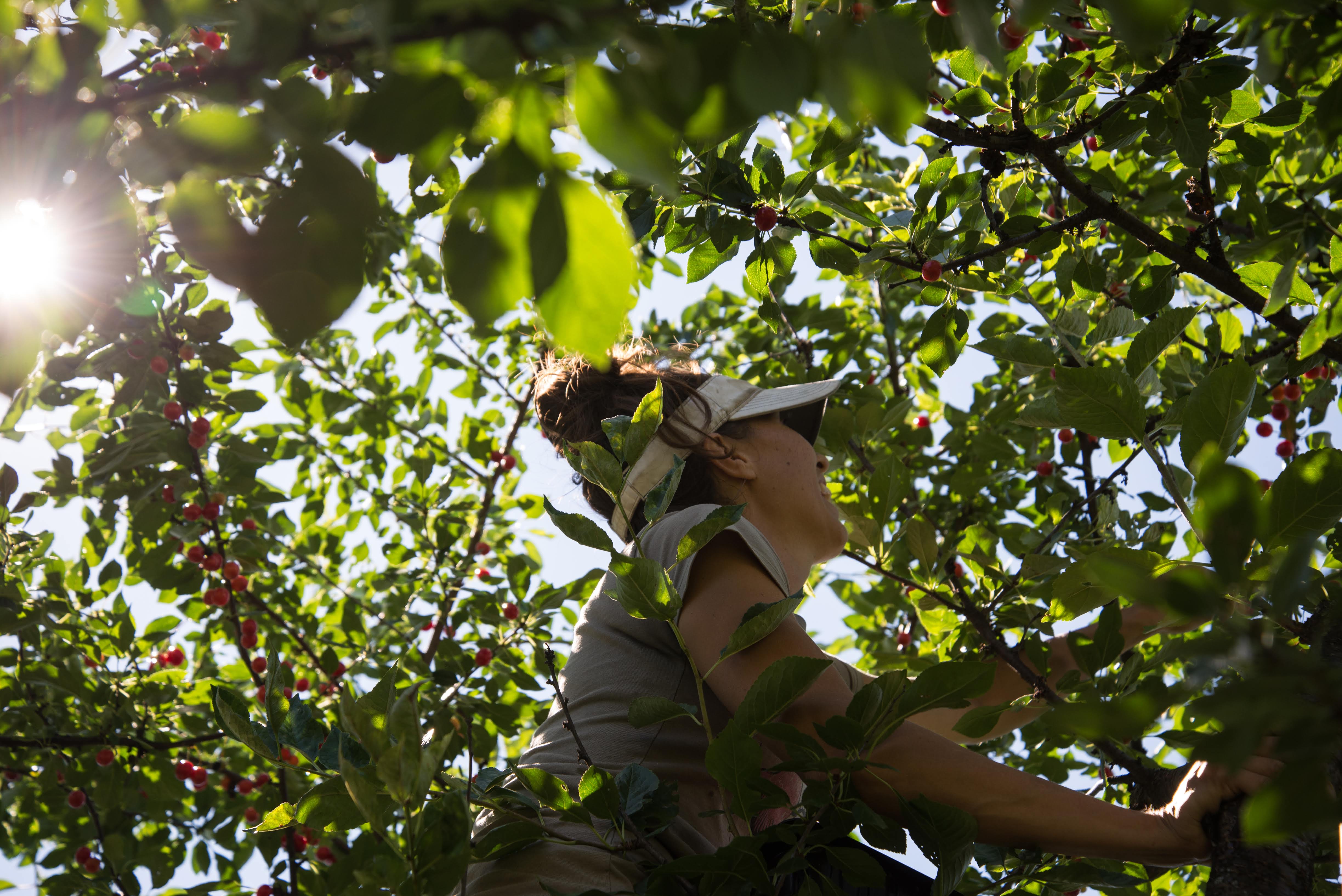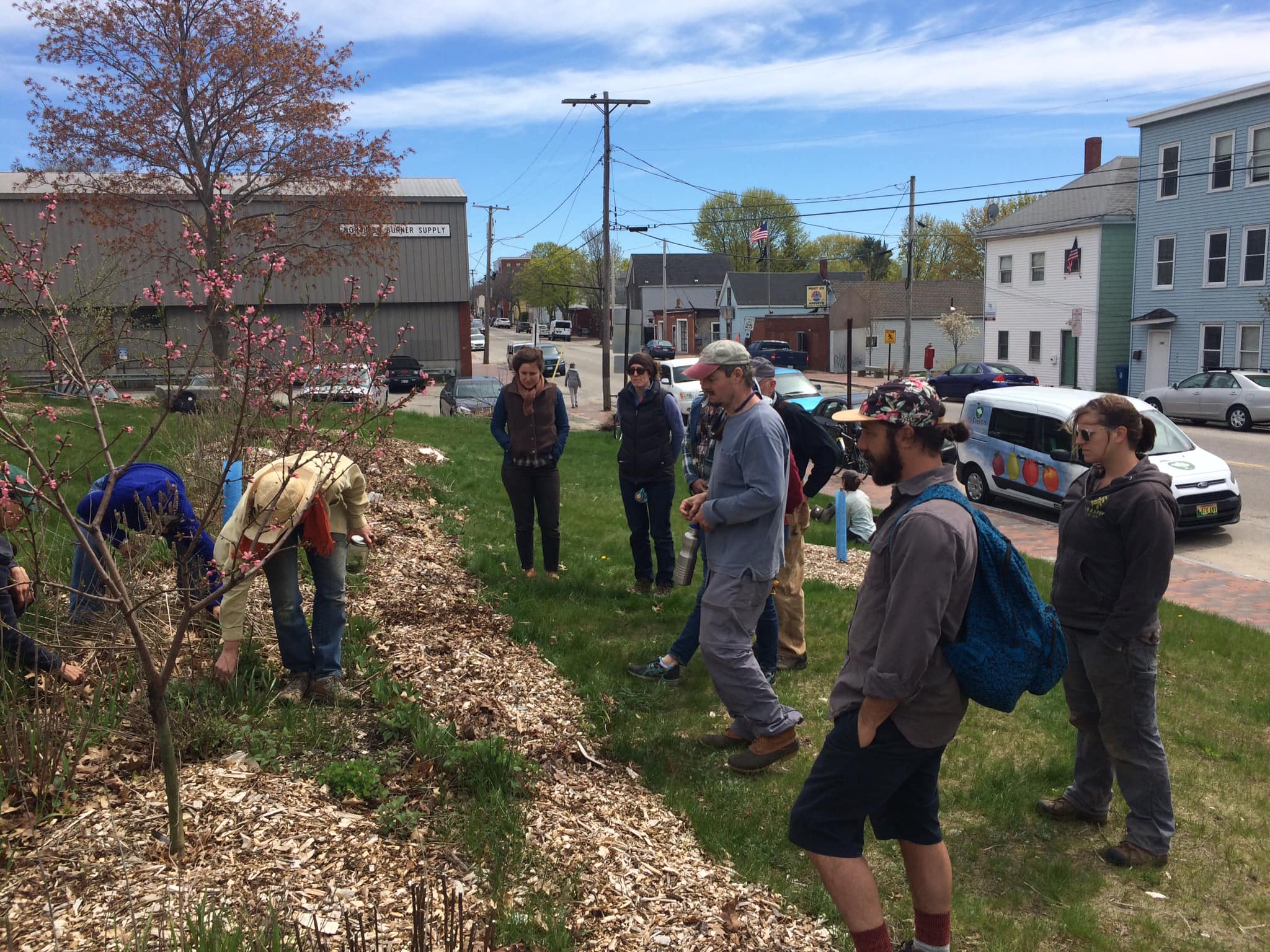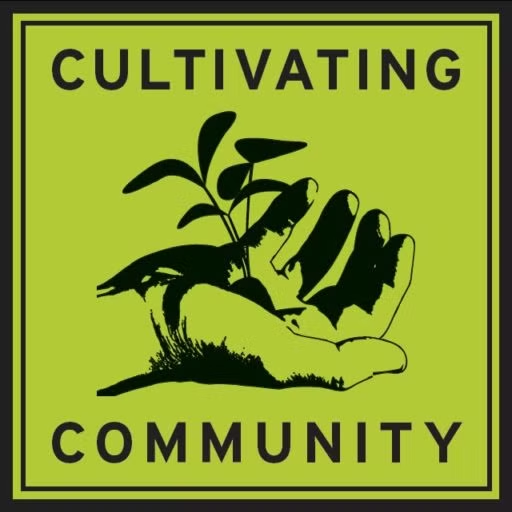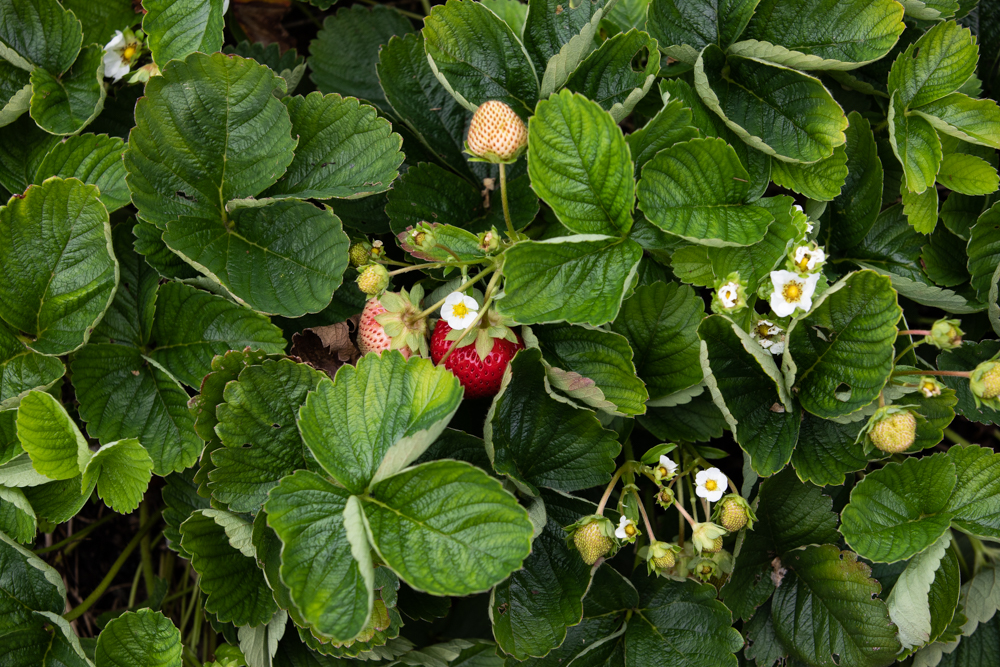Cultivating Community supports several Urban Orchards and Food Forests within Portland.
These sites have been developed over time with the help of many skilled and knowledgeable individuals and organizations with support from the City of Portland. We are grateful to everyone who has made fruit trees and bushes available to all of our community.

Boyd St. Urban Orchard
Adjacent to Cultivating Community’s offices and the Boyd St. Community Garden, there are a number of fruit trees and flourishing berries at this orchard. It was planted in 2008 by youth and staff. This site is a pick-as-needed orchard for the surrounding neighborhood, especially for those who struggle with food insecurity. Aaron Parker, of Edgewood Nursery, has helped us maintain the orchard, in addition to holding many workshops on location. The Boyd St. Urban Orchard is primarily maintained by the city. Here, you’ll find apples, pears, peaches, cherries, and raspberries.
Mt. Joy Urban Orchard
Mt. Joy Orchard sits adjacent to the North St. Community Garden and East End Community School’s garden. There are over 100 diverse fruit trees at this site, which was originally planted in 2012. This free-to-pick public orchard was created by Aaron Parker, Jeff Tarling (former City of Portland Arborist), the Urban Resilience Hub, students and teachers of East End Community School, and ReTreeUS. Regular work days are held at the orchard, and they host an annual community cider pressing in fall.

Libbytown Food Forest
Libbytown Food Forest is located around the Libbytown Community Garden, which is next to Doughtery Park. The food forest – which includes elderberries, fruit trees, raspberries, and strawberries – was built in conjunction with the community garden, as a collaboration between Cultivating Community, the City of Portland, and the Libbytown Neighborhood Association.
Land Acknowledgement
We acknowledge that here in Maine we are on Indigenous land, the territory of the Penobscot, Maliseet, Mi’kmaq, Passamaquoddy, and Abenaki nations. We are grateful for their continued stewardship. We are mindful of how this impacts our work with community agriculture.
Header and footer photos by Greta Rybus

